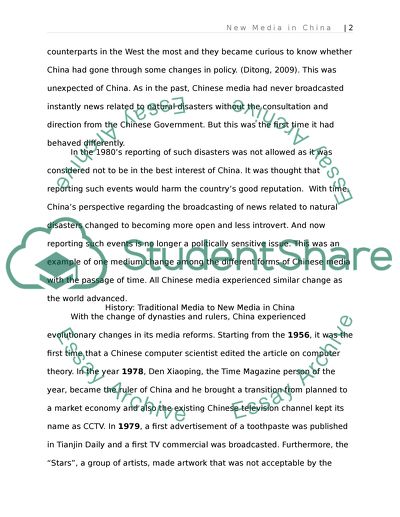Cite this document
(“New Media in China Essay Example | Topics and Well Written Essays - 2000 words”, n.d.)
Retrieved de https://studentshare.org/journalism-communication/1390145-a-critical-analysis-of-new-media-events-in-china
Retrieved de https://studentshare.org/journalism-communication/1390145-a-critical-analysis-of-new-media-events-in-china
(New Media in China Essay Example | Topics and Well Written Essays - 2000 Words)
https://studentshare.org/journalism-communication/1390145-a-critical-analysis-of-new-media-events-in-china.
https://studentshare.org/journalism-communication/1390145-a-critical-analysis-of-new-media-events-in-china.
“New Media in China Essay Example | Topics and Well Written Essays - 2000 Words”, n.d. https://studentshare.org/journalism-communication/1390145-a-critical-analysis-of-new-media-events-in-china.


